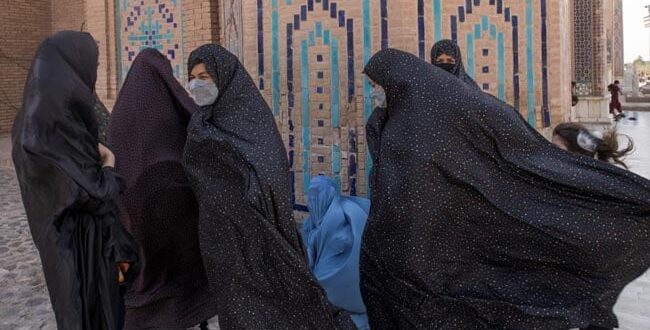Kabul: one by one, quickly, carefully, keeping their heads, a group of Afghan women stepped into the small Kabul Apartment Block – risking their lives as a new resistance to the Taliban.
They gathered to plan their next attitude towards the hardline Islamic regime, which took back power in Afghanistan in August and took off their dreams.
At first, there were no more than 15 activists in this group, most of the women in their 20s who had known each other.
Now there is a dozens of women – ever students, teachers or NGO workers, as well as housewives – who have worked secretly to regulate protests over the past six months.
I asked myself why not joining them instead of staying at home, depressed, thinking about everything we lost,” a 20-year-old protester, who asked not to be named, told AFP.
They know such challenges for new authorities may cost them all.
Four of their recent colleagues were confiscated for weeks, until the United Nations confirmed their release on Sunday.
When the Taliban first ruled Afghanistan between 1996 and 2001, they became famous for violations of human rights, with women mostly limited to their homes.
Now back to the government and even though they promise softer rules, they take action against female freedom once more.
There is a separation forced in most workplaces, leading many entrepreneurs to fire female staff, and women are prohibited from the major public sector work.
Many women’s secondary schools have been closed, and the university curriculum is being revised to reflect their hardline interpretation of Islam.
Haunted by the memory of the last Taliban regime, some Afghan women were too afraid to come out or suppressed their families to stay at home.
For the mother of four Shala, who asked AFP to only use her first name, returning to the cage of a woman as it was her biggest fear.
A former government employee, his work has been taken from him, so now he helps regulate resistance and sometimes sneaks out at night to paint graffiti slogans such as “long life equality” across the wall of the country’s capital.
I just want to be an example for young women, to show them that I won’t give up the fight,” he explained.
The Taliban could endanger his family, but Shala said her husband supported what he did and his children learned from his disobedience – at home they practiced demanding education.


No Comments Yet